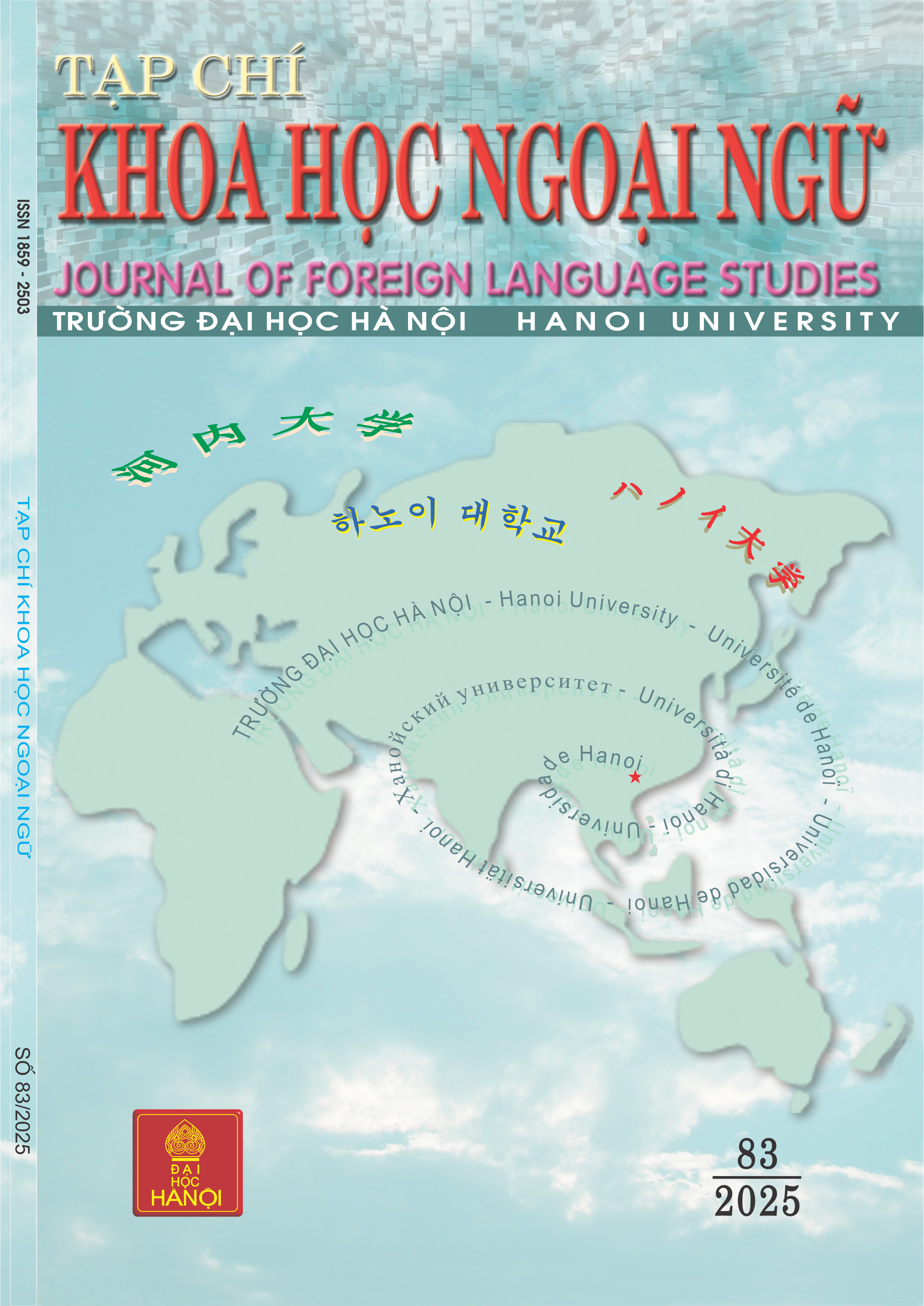SYNTACTIC FEATURES OF JAPANESE PROVERBS IN SIMPLE SENTENCE FORM CONTAINING ANIMAL ELEMENTS
DOI:
https://doi.org/10.56844/tckhnn.83.933Keywords:
proverb, syntax, simple sentence, theme, subject, predicateAbstract
This study examines 118 Japanese proverbs containing animal-related elements in simple sentence form, collected from various Japanese proverb dictionaries. Based on the definitions and classifications of simple sentences proposed by Japanese grammarians, this study applies semantic role coding to identify typical syntactic patterns. The findings reveal four key characteristics of these proverbs: (i) they generally conform to the basic order and syntactic relations of Japanese; (ii) syntactic markers and sentence components, such as subjects and predicates, are omitted; (iii) emphatic and inverted structures are used, often leading to clause ambiguity; and (iv) sentences with subjects, themes and verb predicates are the most common, with subjects and themes typically realized as animal nouns. These results offer practical implications for language teaching and translation, as well as a theoretical basis for contrastive studies of proverbs in Japanese and Vietnamese.






